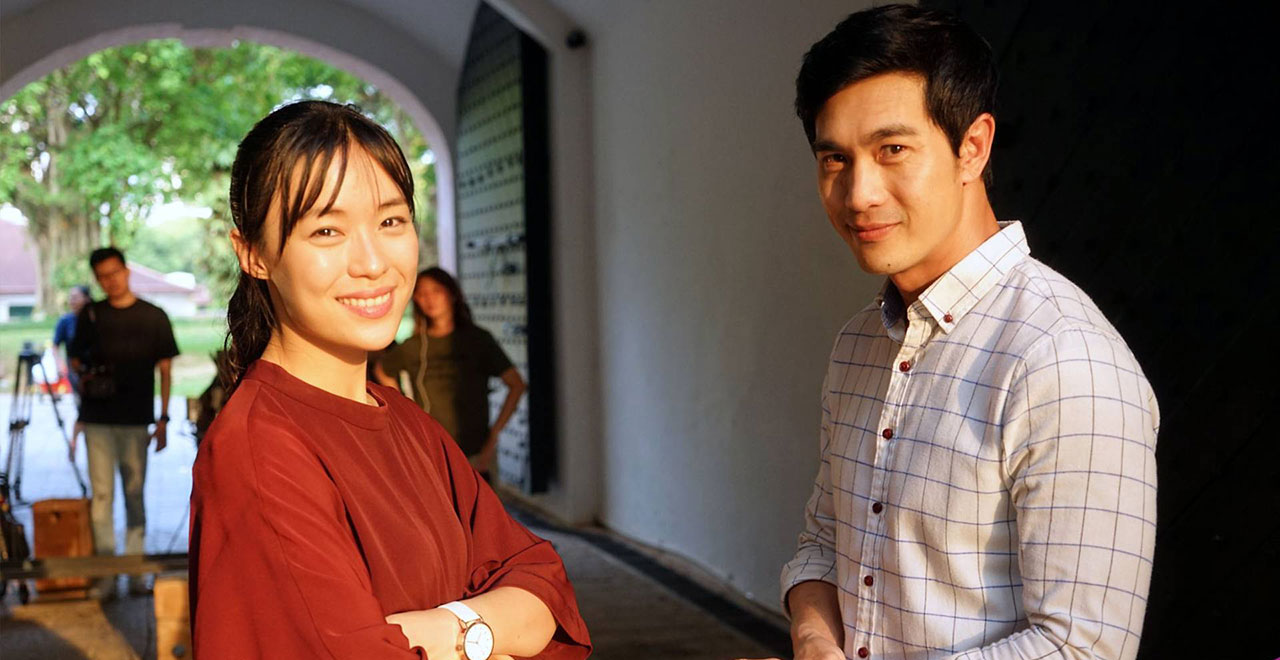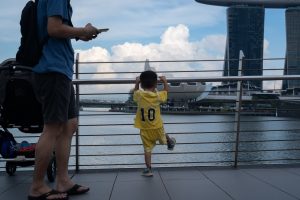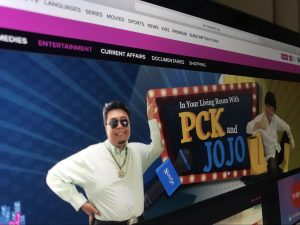Singaporean TV production is not dead, but possibly better than ever.
This is the message that Mediacorp is sending with the launch of its new show Missing, premiering tonight on Channel 5. The 15-episode thriller series revolves around a CID officer and a tour guide who are caught in the underbelly of a dangerous international human trafficking syndicate, and marks the first Singapore-Thailand collaboration on the network.
Judging by the trailer, which is action-packed yet sombre in tone, this is certainly Mediacorp’s most ambitious project yet. The network isn’t pulling any punches with the lead actors either. Pierre Png, who shot to fame with his role on Phua Chu Kang Pte Ltd as the titular character’s brother, is now a veteran of Singaporean television and will star in the Hollywood film Crazy Rich Asians later this year.
Meanwhile, co-star Rebecca Lim, who also plays Pierre’s love interest, is quite possibly the hottest actress from this generation of local artistes – she has been anointed as one of the successors to queen of Caldecott Hill Zoe Tay.
Last month, I sat down with Pierre and Rebecca to talk about how Singaporean TV can reignite that magic which enthralled Singaporeans in the late ’90s. Despite the ubiquitous presence of Netflix and the scepticism of Singaporeans, both actors remain optimistic about the future of local TV.
Rebecca: I honestly think it is fantastic that we are moving towards that direction of trying new things.
Currently we are catering to two groups of audiences with the two timeslots at 7.30 PM and 9 PM. The slot at 7.30 PM caters to families with the typical family drama. It is usually something that audiences are familiar with – very feel-good, harmonious, and trying to intertwine current affairs and events happening in and outside Singapore to make the show relatable to everybody.
But at the same time, I feel that we have to venture out to other genres as well. That’s what we should be doing. That’s the only way we can grow. Understandably, people may not be comfortable or very open towards this change, but I honestly feel that this is a very good change. Some people adapt to change faster, and some never adapt to it. But if you never make the first move you never know.
I feel that if you’re always too afraid to make the first move to avoid upsetting people or losing them, then you’re never going to gain a new range of audiences. Who knows, the viewers who are very averse to the new genres now may actually enjoy it some time later.
We have no control over our viewership or the critics. We just put in our best and hope for the best. That’s our life in the entertainment industry.
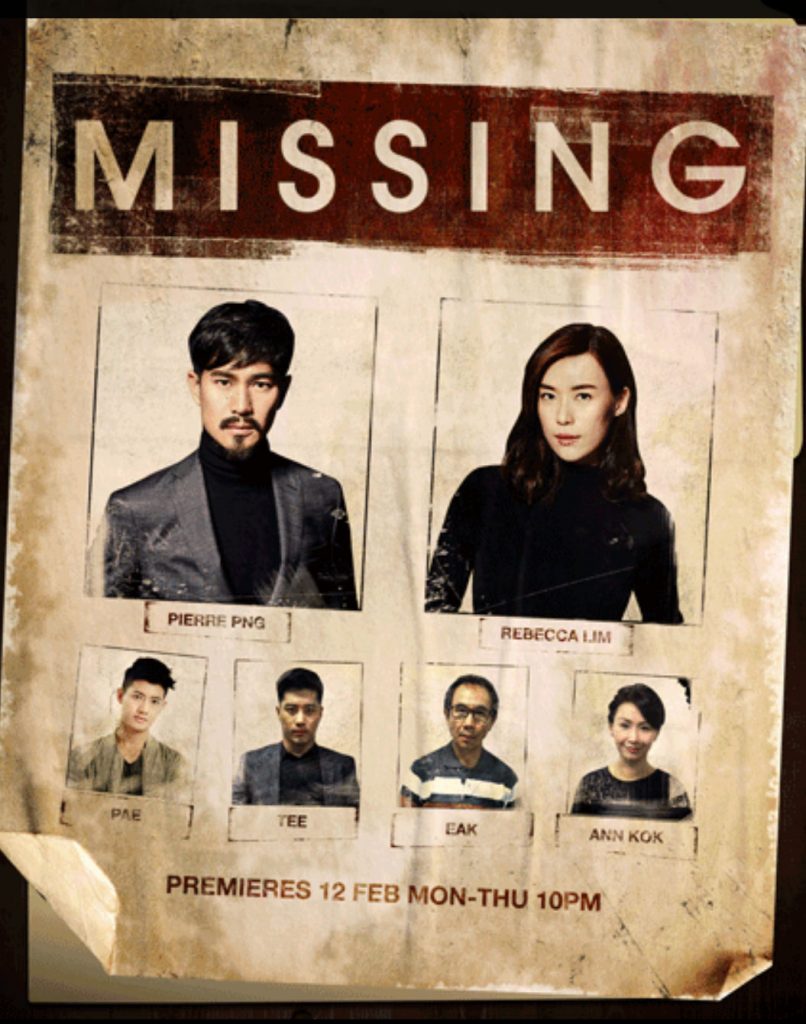
Pierre: I think it’s a problem that is not only present here in Singapore but all over the world. Thanks to social media and how accessible shows from other countries are available, all you need is a tap and a click.
I think what Singaporeans can do is identify with our own culture and be proud of it. Sure, trying to speak with a neutral accent or trying to speak better English or Mandarin could actually help our shows travel even further. But at the same time, we also need to be proud of what we have, what little history we have of the spoken language and our shared culture with neighbouring countries.
I have watched enough of our local dramas to know that we have very good shows on Channel 5. It’s just that we are not proud, and when I say we are not proud, I mean Singaporeans by culture are a bunch of complainers. We are never satisfied and always looking down on our own kind.
Together with the local authorities and the powers up there, if we can actually create a movement and show some of the stuff that Singaporeans have done for an entire month – for example we have very good singers from my parents’ time to the current generation’s like The Sam Willows – celebrate their performances and whatever they’ve managed to churn out, that would be great.
If we could show them our support, not just on social media and individually, but also with the government and authorities all stepping in, I think all the more we can improve.
R: To be very honest, this is the toughest show that I’ve played on Channel 5 to date. The storyline is not something that I’ve explored before or even remotely close to any shows that I’ve done. Also, my character Lynn has zero similarities with my real life and personality. Lynn grew up alone after her mum died and her dad went missing when she was very young, so she has no concept of what family is. She also doesn’t know how to fall in love.
Lynn’s character arc is also about finding closure. She’s someone who is always pushing things aside, not wanting to face the issues or her hurtful past, and when it really hits her and she has nowhere to hide, I think those kinds of emotions are very difficult to deal with because honestly my life has been pretty good! [laughs]
We live in a safe country, so to play very emotionally draining characters requires a lot of concentration. The script helped me immensely by providing a lot of backstory, and our director (Huang Fen Fei) would play some music for me at the side when she saw that I was having difficulty getting into character or emotions.
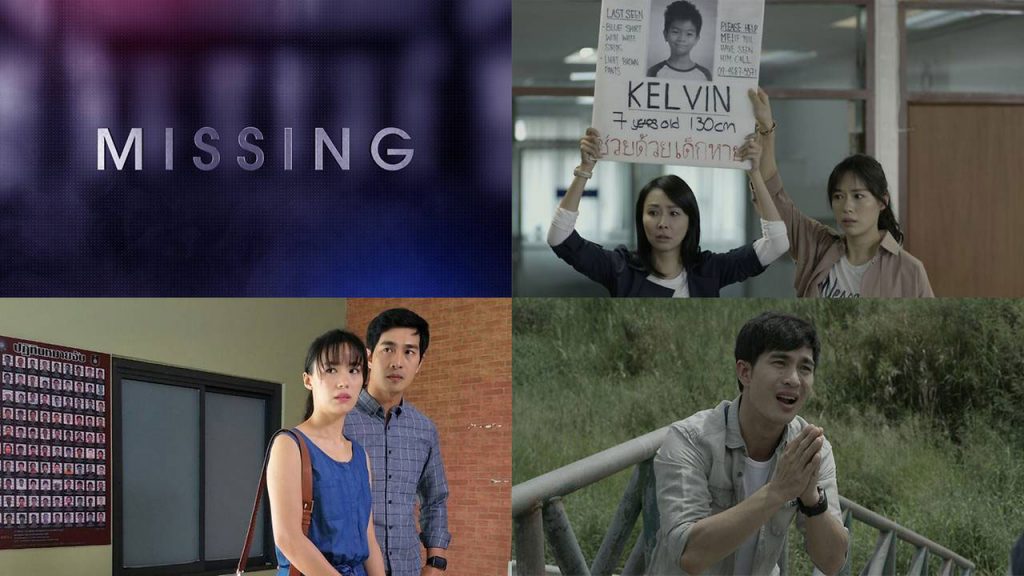
P: In Singapore, we are very much used to shooting on a single camera, whereas in Thailand we had the luxury of using two cameras manned by two teams. So in terms of labour, we had more people on set than the actors at any point in time. Over here in Singapore, because we pretty much shoot on a single camera, production is really fast. We had so many scenes to do and so many locations to run to, everything was done in a very short and precise manner. In Thailand, we did a lot of master shots.
We also had to get used to each other’s style of filming. When they came to Singapore, they were so marvelled and so surprised that we could shoot everything on just one single camera. But it also required a lot of concentration, whereas in Thailand we had the luxury of doing it from top to end, and also do different takes, and they would eventually have to piece together everything. So it’s all about different cultures and preferences on set.
B: What is one aspect of Thai production which you think Singapore can emulate?
P: Maybe we could have more cooperation from the authorities? For example we could get clearance or permission to close down streets for filming, or get the help of the police, the locals or some of the bars and restaurants that we use. It’s a give and take. You want the industry to grow, you got to have the support of the different authorities.
In Thailand, it’s such a big country, there are so many productions going on that people are used to them. They don’t crave or try to steal the limelight from you. Everyone just knows their place, and it really is a land of smiles. Everyone is just so helpful.
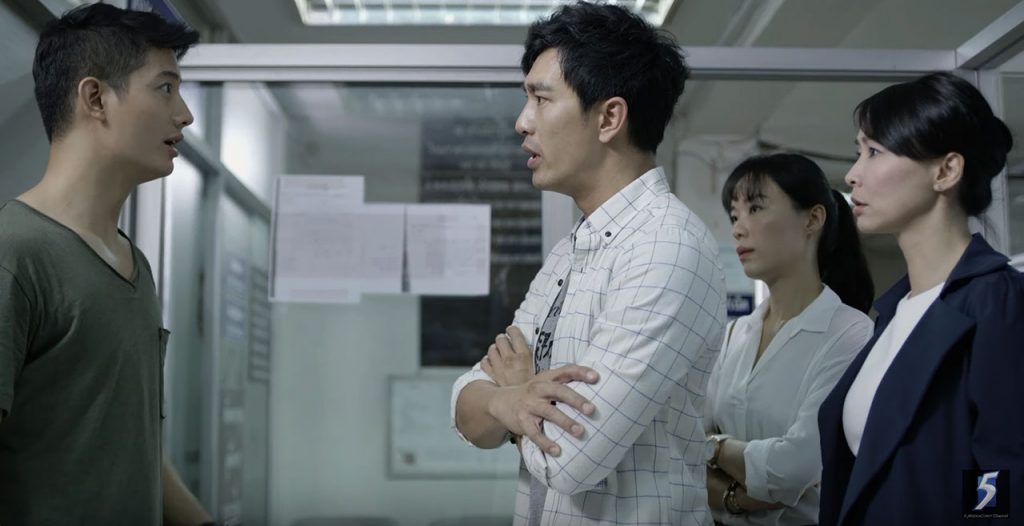
R: Fortunately no one has gone missing in my life. It’s very common in Thailand, so being in Singapore we are very blessed.
I lost my grandma about five years ago. It’s the first time that I experienced the loss of a loved one. I couldn’t really come to terms with it because we were very close – she used to live with my mum. Throughout the wake I didn’t cry, and I thought something was wrong with me. But only during the cremation when I saw my dad crying, that was when I broke down.
Closure is good but at the same time it’s very painful.
B: How do you feel entering your 30s?
R: I am very comfortable being in my 30s, it was very terrifying when I was in my early 20s thinking about what I’ll be. Now that I’m 31, I feel very good about it, surprisingly. I actually like myself a lot more in my 30s than I was in my 20s. In my 20s, I was very ignorant, very living in my own world. I was not exposed to a lot of things and I was just very sheltered.
So in the past 10 years I think I’ve really grown a lot through setbacks not just at work but in life as well. I think they have made me a lot surer about who I am as a person, and also helped me to grow in terms of filtering out unnecessary people in my life. I think that’s very important because sometimes it doesn’t help to have so many people around you, it just saps all your energy. So you filter the bad, retain the good and you hope to get better.
As an actor, I also learnt that it is important to trust the team and not feel that they are judging whether you are performing well or not. You have to cast everything aside, because when I started acting I always felt that every day on set was a test, and everybody was invisibly judging you with a report card, this scene is grade five out of 10, four out of 10 etc. But now I’ve learnt to forget that and focus completely on my acting.
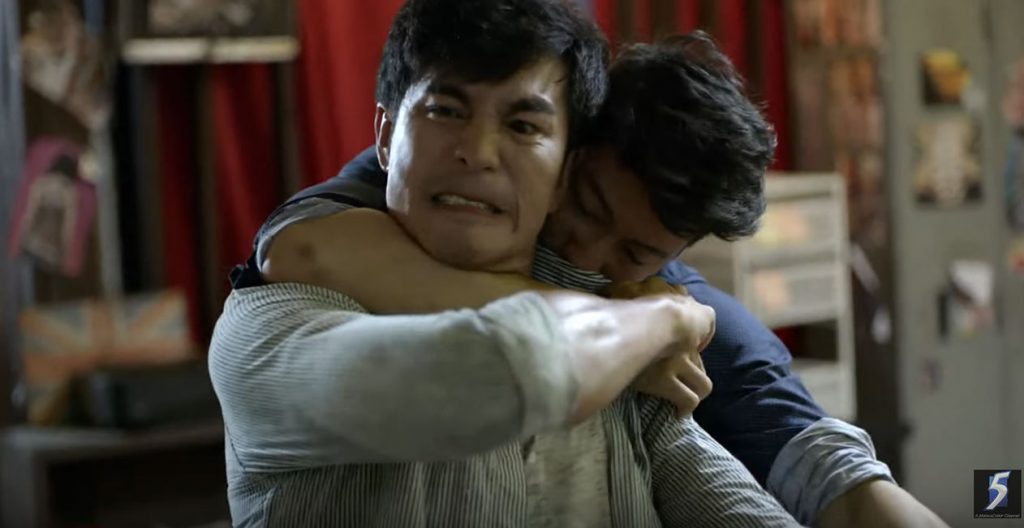
P: What is really good about that is when you work with an international crew, you see how they piece everything together, and how nobody oversteps their boundaries. You realise that is something we don’t have and lack, and only time would allow something like that to happen.
When we are filming for a Singapore production and moving from one location to another, everyone chips in, they carry the props, the clothing, etc and move out. We shoot at such a fast pace that if you don’t help out, at the end of the day everyone suffers.
In Hollywood, because the production is so big, nobody does anything other than what they are tasked to do. So you don’t go and switch off the light even though you are closest to the switch, because someone is being paid to switch off the light. And if you do that, this person who has that responsibility will be very angry with you because you are taking away his job. People may say, “If Pierre is always there to help out, we don’t need this person any more.” So they take their jobs very seriously.
I had such a small role in Crazy Rich Asians and was there too short a time to actually observe even more. But it’s amazing to be on set and be treated like an actor where you’re there to do just your job, while everybody totally does everything for you and gives you all the attention, and leaves you nothing to do but concentrate on your acting. I think that is something that I hope we can adopt or emulate.
B: Your co-star will be featured in a Hollywood film this year. Are you looking to do more overseas collaborations?
R: Definitely, I’m always very open to it. I shot an American-Philippine movie last year which is not out yet. It’s not Hollywood but the experience was very good. I’m very open to experiences of any kind and I’m not tied down by family commitments.
I feel that it’s very important to get out of your comfort zone. Sometimes you’re too comfortable filming, you forget that you really have to step out to learn more. That’s the only way to do it because you’re always doing the same thing over and over again, you’re going to be stagnant and one day disillusioned, jaded and tired.
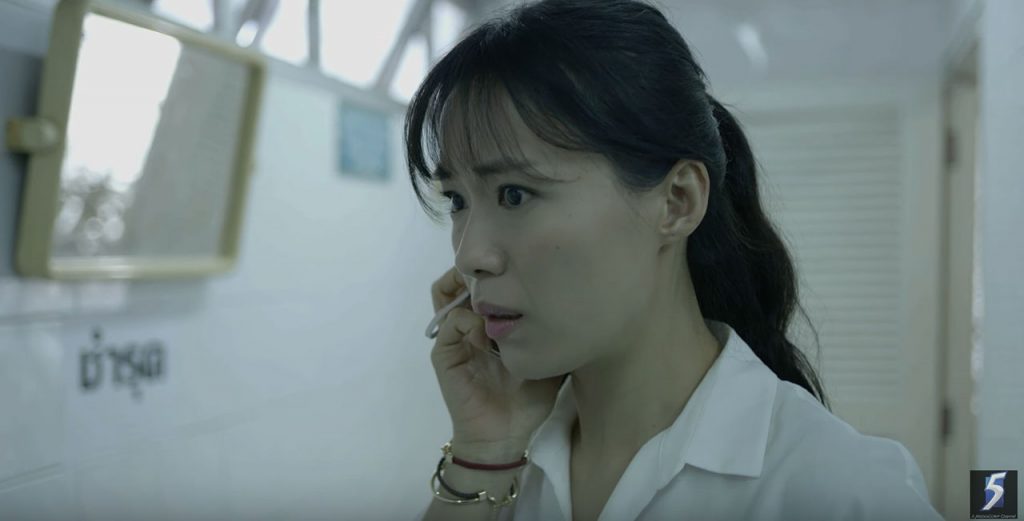
P: I wouldn’t go so far as to say Netflix. I think I’ll start with something a little bit closer to us which is iflix (subscription video-on-demand service in Malaysia). There are just too many opportunities, and China’s market is also on the rise. Now that we’ve done a collaboration with Thailand, we just take it one step at a time. Whatever comes my way, I’ll be more than happy to give it a shot.
If I can do something as crazy as a musical in Mandarin, I’m ready for anything.
Missing airs on Channel 5 Mon to Thurs 10 PM.
Have something to say about this story? Write to us at community@ricemedia.co

